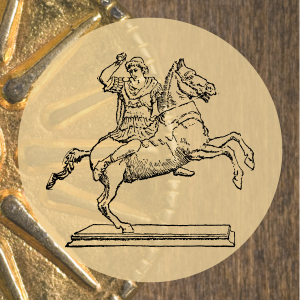Customer Services
Copyright © 2025 Desertcart Holdings Limited



Full description not available





H**E
Excellent!
This book is worth reading. From its meticulously researched details to its accessible nature that allows everyone interested in history to enjoy what is contained within these pages, "Alexander the Great" lives up to its title. There is no surprise here, as volumes in this series are generally known to be superb!
C**G
very detailed larger book
Most books or movies center on the Battles and Victories that made him. This book is different in its details of geography and people and pre-historical events.
B**N
...there Is much to learn....
In spite of the title; it's not until 40% into this book that the subject matter actually gets around to "Alexander the Great'.Oddly, several times, the text uses the phrase "might have said" to signify what someone MIGHT have said. Then there are occasions where the reader is told that someone uses cunning, or brilliant planning, to achieve a goal…but the method or action is not actually explained. Then there are (of necessity?) occasions where the author purely assumes or guesses at circumstances, or actions.The great majority of the book is taken up with detailed descriptions of battles.STILL - there Is much to learn from this glorification of Alexander.
T**6
Remarkable Man
Unbelievable what he accomplished in his short life. Not only a brilliant commander and warrior but also one who understood the importance of learning and growing.
H**S
Disappointing
Disappointing
K**R
Alexander the Great
Lots of info in this well-written guide.
V**S
Alexander the Great
It is a magnificent book that analyses the history and achievements of Alexander the Great.
W**R
Who knew? Right?
Alexander the Great is one of the most prominent figures in ancient history, known for his military conquests and political prowess. Born in 356 BCE in Pella, the ancient capital of Macedonia, Alexander was the son of King Philip II and Queen Olympia. From an early age, Alexander was groomed for leadership and given a rigorous education in military strategy, politics, and philosophy under the tutelage of Aristotle.When Alexander was only 20 years old, he succeeded his father as king of Macedonia. Immediately upon taking the throne, he set his sights on expanding his empire. In 334 BCE, Alexander led an army of approximately 35,000 soldiers across the Hellespont, a narrow strait that separates Europe and Asia. This marked the beginning of his campaign to conquer the Persian Empire.Over the course of the next decade, Alexander achieved a series of stunning victories on the battlefield. He defeated the Persian king Darius III at the Battle of Issus in 333 BCE, and again at the Battle of Gaugamela in 331 BCE. He then continued his conquests into Central Asia and India, where he faced fierce resistance from local armies and encountered new cultures and religions.Despite facing numerous challenges and setbacks, Alexander was a brilliant military strategist who was able to adapt to changing circumstances and inspire his troops to victory. He was known for leading his soldiers from the front, and he fought alongside them in many battles. His leadership style earned him the loyalty and admiration of his soldiers, who were willing to follow him to the ends of the earth.In addition to his military conquests, Alexander was also a skilled politician and diplomat. He understood the importance of winning over the hearts and minds of the people he conquered, and he adopted many of the customs and traditions of the cultures he encountered. He also founded several new cities, including Alexandria in Egypt, which became a major center of learning and culture in the ancient world.Despite his many successes, Alexander's life was cut tragically short. He died in 323 BCE at the age of 32, possibly from malaria or poisoning. His death left a power vacuum in his empire, which led to a period of instability and conflict known as the Wars of the Diadochi.Today, Alexander is remembered as one of the greatest military commanders in history. His conquests had a profound impact on the ancient world, spreading Greek culture and Hellenistic ideas throughout the Mediterranean and Near East. His legacy also lives on in the many cities he founded, which served as centers of trade, commerce, and learning for centuries to come.Alexander the Great was a remarkable leader who left an indelible mark on history. He was a brilliant military strategist, a skilled politician, and a charismatic leader who inspired loyalty and devotion from his soldiers. His legacy continues to be felt today, and his story serves as a reminder of the power of human ambition, courage, and determination.
Trustpilot
1 month ago
1 month ago